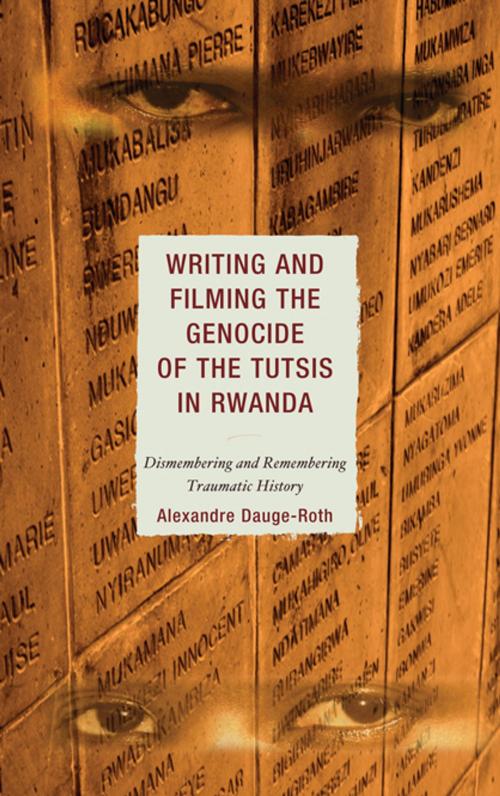Writing and Filming the Genocide of the Tutsis in Rwanda
Dismembering and Remembering Traumatic History
Nonfiction, History, Africa| Author: | Alexandre Dauge-Roth | ISBN: | 9780739147627 |
| Publisher: | Lexington Books | Publication: | April 27, 2010 |
| Imprint: | Lexington Books | Language: | English |
| Author: | Alexandre Dauge-Roth |
| ISBN: | 9780739147627 |
| Publisher: | Lexington Books |
| Publication: | April 27, 2010 |
| Imprint: | Lexington Books |
| Language: | English |
Writing and Filming the Genocide of the Tutsis in Rwanda: Dismembering and Remembering Traumatic History is an innovative work in Francophone and African studies that examines a wide range of responses to the 1994 genocide of the Tutsis in Rwanda. From survivor testimonies, to novels by African authors, to films such as Hotel Rwanda and Sometimes in April, the arts of witnessing are varied, comprehensive, and compelling. Alexandre Dauge-Roth compares the specific potential and the limits of each medium to craft unique responses to the genocide and instill in us its haunting legacy. In the wake of genocide, urgent questions arise: How do survivors both claim their shared humanity and speak the radically personal and violent experience of their past? How do authors and filmmakers make inconceivable trauma accessible to a society that will always remain foreign to their experience? How are we transformed by the genocide through these various modes of listening, viewing, and reading?
Writing and Filming the Genocide of the Tutsis in Rwanda: Dismembering and Remembering Traumatic History is an innovative work in Francophone and African studies that examines a wide range of responses to the 1994 genocide of the Tutsis in Rwanda. From survivor testimonies, to novels by African authors, to films such as Hotel Rwanda and Sometimes in April, the arts of witnessing are varied, comprehensive, and compelling. Alexandre Dauge-Roth compares the specific potential and the limits of each medium to craft unique responses to the genocide and instill in us its haunting legacy. In the wake of genocide, urgent questions arise: How do survivors both claim their shared humanity and speak the radically personal and violent experience of their past? How do authors and filmmakers make inconceivable trauma accessible to a society that will always remain foreign to their experience? How are we transformed by the genocide through these various modes of listening, viewing, and reading?















